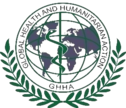Global Health and Humanitarian Action (GHHA) is a national non-profit, non-governmental organization with field operations in six states: Central Equatoria, Northern Bahr El Ghazal, Jonglei, Upper Nile, Lakes, Eastern Equatoria and the Greater Pibor Administrative Area in South Sudan. The organization has approximately 20 regular staff members and 30 volunteers operating across its field offices and headquarters in Juba.
GHHA is registered as a non-profit organization with the South Sudan Relief and Rehabilitation Commission (RRC) under Registration Number 3843. It was established in September 2021 to address the health needs of vulnerable people in South Sudan.
